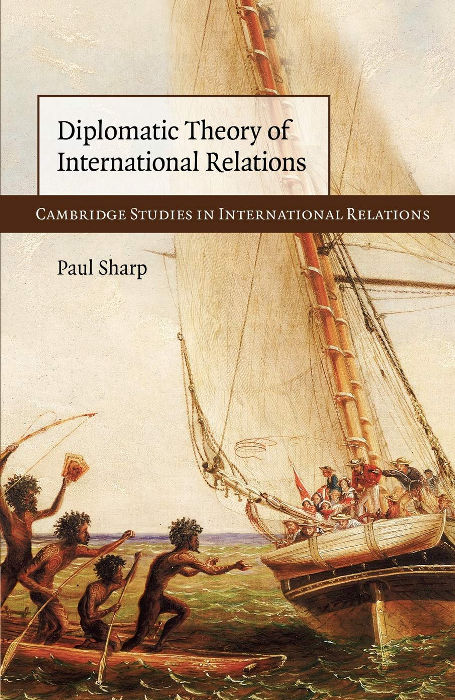Books
Paul Sharp
Diplomatic Theory of International Relations (Cambridge Studies in International Relations, 111)
What if diplomacy isn’t just a tool of states, but a fundamental way in which all groups manage their differences? In Diplomatic Theory of International Relations, Paul Sharp challenges the traditional boundaries of diplomacy, arguing that its principles are essential wherever people live in distinct groups and must navigate coexistence.
Sharp’s book represents a significant departure from conventional international relations texts, which typically use IR theories to explain what diplomats do. Instead, he flips the lens, exploring what diplomats and the practice of diplomacy can teach us about the nature of international politics and the management of group relations.
He identifies a distinct “diplomatic tradition” of thought, rooted in the recognition that relations between groups—whether states, corporations, or communities—require a unique set of skills, attitudes, and philosophical outlooks.
The book examines how diplomacy is not confined to statecraft but is relevant wherever inter-group relations exist. Sharp draws on historical and contemporary examples, from the international relations of the ancient world and medieval Europe to modern encounters between states, corporations, and religious groups.
He discusses how diplomatic thinking encourages skepticism of universal claims, a preference for accommodation over confrontation, and an appreciation for the partial and provisional nature of most human arrangements.
Sharp’s analysis extends to critical contemporary issues such as rogue states, religious extremism, and public diplomacy, offering a novel perspective on how policy should be conducted toward such actors.
He argues that “thinking diplomatically” can help us navigate the complexities and pluralism of modern international society, making diplomacy not just a profession, but a philosophy of peaceful coexistence in a diverse world.
Diplomatic Theory of International Relations is recognized as a modern classic in diplomatic studies, praised for its humane and insightful approach. Sharp’s work is essential reading for scholars, students, and practitioners seeking to understand not just the mechanics of diplomacy, but its deeper role in enabling peaceful relations among groups in an increasingly pluralistic and interconnected world.

